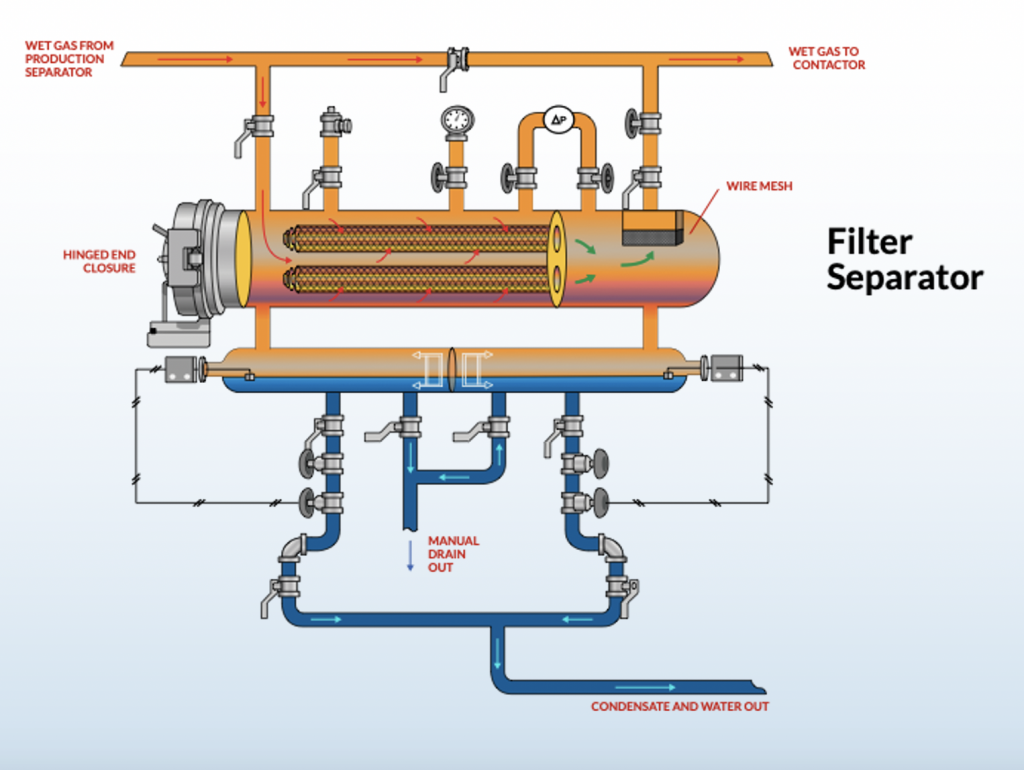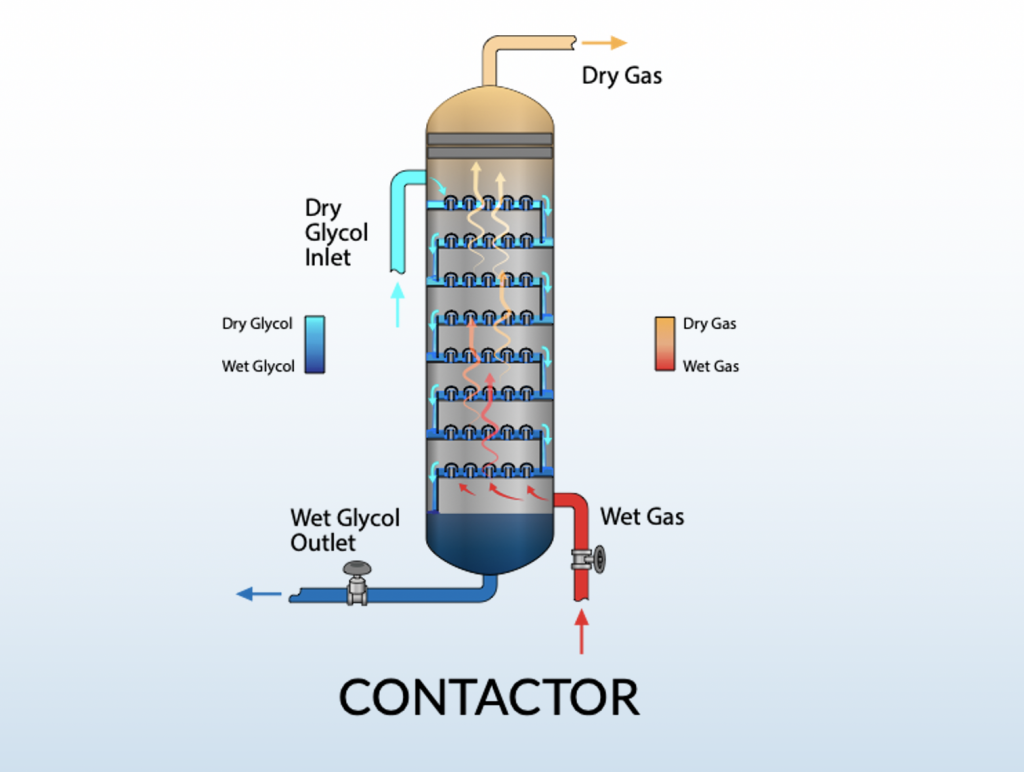
Instructor
Michael Sinagra
Commanding 35 years of production equipment experience, Michael Sinagra is recognized as an industry expert on Triethylene Glycol Regenerative Gas Dehydration Systems. Based on many hours of field experience, his gas dehydration school was developed over 20 years ago and still found to be essential within the industry.
Gas Dehydration Training Conducted Through the Triethylene Glycol Regenerative Method (2 Day Course)
What will You Learn?
- Operate more cost efficiently by:
- Reducing glycol consumption
- Reducing fuel gas costs
- Reducing unnecessary glycol losses, maintenance, and repairs
- Troubleshoot 95% or more glycol unit problems with the assistance of a proven 3 step formula.
- Understand the 5 fine points of a proactive preventative maintenance plan.
- Identify the safe shortcuts to a simple startup and shutdown of a glycol system.
- Learn how to troubleshoot through glycol analysis interpretation.
- Understand the 3 secrets to lower dew point depression.
- Understand what to do and not do in attempting to achieve a lower outlet gas water to content.
- Learn how to capture the light condensate trapped in glycol.
Who Should Attend?
- All personnel involved in operating glycol system equipment
- Newly hired engineers
- Production Foremen and Supervisors
- Safety Management personnel

Course Objectives
Increased Employee Effectiveness
Decreased Cost of Operations
Substantial financial benefits
Our customers have reported up to a 50% cost savings due to their employees’ new awareness of proper startup procedures, operating procedures, maintenance programs, and safety awareness.
Course Objectives
Principles and Operations of a Triethylene Glycol Dehydrator
- Water content of natural gas
- Purpose of dehydration
- Absorption selection of glycol
- Distillation
- Components and variations
- Glycol flow patterns
Operating Conditions and Limits
- Pressure
- Temperature
- Liquid levels
- Flow rates
- Effect of variables outside their recommended ranges
Glycol System Startup and Shutdown
- New unit startup
- Previously operating unit startup
- Shutdown for short term & long term
- Shortcuts for startup
System Maintenance
- Prevention maintenance / operator communication
- Record keeping
- Mechanical maintenance
- Glycol care
- Corrosion control
Troubleshooting
- Knowing where there is a problem
- Logic to troubleshooting
- High outlet gas water content
- Glycol concentration / losses
- Excess operating cost
Glycol Pumps and Glycol Circulation
- Energy exchange pumps
- Electric drive pumps
- Hydra-Lectrik pumps
- Determining glycol circulation rates
Filtration
- Interception
- Absorption
- Strainers
Glycol Analysis
- Parameters
- Interception
Condensable VOC Removal
- Environmental
- Recovery Profits

